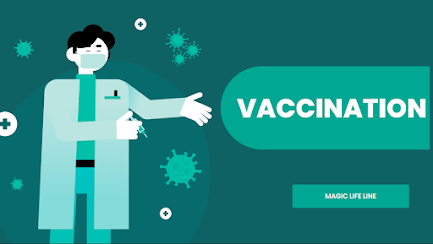Vaccination is necessary because it protects individuals and communities from dangerous infectious diseases. Here’s a breakdown of why it's so important:
✅ 1. Protects You from Serious Illness
Vaccines help your immune system recognize and fight harmful viruses and bacteria before they make you seriously sick.
Examples:
-
Polio vaccine prevents paralysis.
-
Measles vaccine prevents severe complications like brain swelling.
-
COVID-19 vaccines reduce the risk of hospitalization and death.
✅ 2. Prevents the Spread of Disease (Herd Immunity)
When most people are vaccinated, it reduces how quickly a disease can spread — protecting those who can’t be vaccinated, like:
-
Babies
-
People with weakened immune systems
-
The elderly
This is called herd immunity.
✅ 3. Reduces Disease Outbreaks
Vaccines help stop outbreaks before they begin. Diseases like measles and diphtheria can resurge if vaccination rates drop.
✅ 4. Saves Lives and Healthcare Resources
Vaccination has eradicated or dramatically reduced many deadly diseases. For example:
-
Smallpox was wiped out globally through vaccination.
-
Deaths from diseases like tetanus, hepatitis B, and whooping cough have decreased significantly.
Fewer sick people also means less strain on hospitals and lower medical costs.
✅ 5. Prepares the Immune System Safely
Vaccines give your immune system a "practice run" by introducing a harmless form of a germ (or part of it), so it's ready to respond quickly and effectively if exposed in the future — without having to get the full-blown illness.
✅ 6. Helps Control Global Pandemics
Vaccines are critical tools in managing pandemics (like COVID-19, influenza, etc.), reducing severity, and helping life return to normal.
Summary:
Vaccination is one of the safest, most effective public health tools ever developed. It protects you, protects others, and helps keep deadly diseases under control or even eliminate them entirely.
Would you like details about how a specific vaccine works or a vaccination schedule for children or adults?







